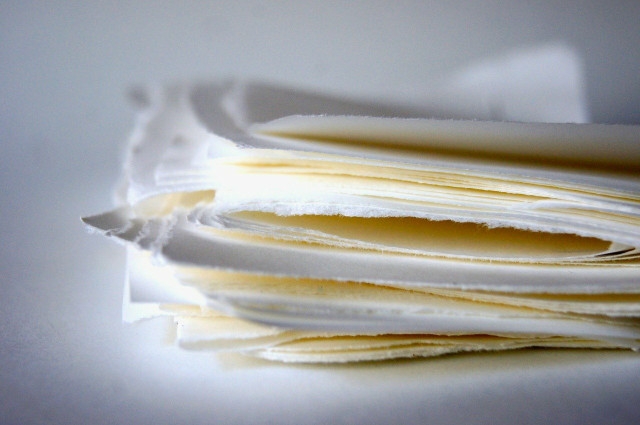Are you a bibliophile who owns too many books to fit inside your home? Or perhaps you’ve cleaned out that dusty bookshelf and are looking for ways to repurpose those old books no one will read anymore? We’ll share 10 ideas for what to do with old books.
Tips to Help You Get Rid of Books
For many of us, getting rid of books can be a real challenge. Some are so good you just know you’ll give them another read, others hold sentimental value. Then there are those must-reads that you want to keep or you may own literature on a special subject that you need for your work or studies.
However, there may come a time when you find yourself having to clear out some of the old books piling up around you. If you’re finding it hard to decide which books to keep, ask yourself this:
- Will I ever read this book again?
- Does it hold sentimental value?
- Do I need this book for work or research? Is it still up-to-date?
- Have I cooked any of the recipes from this cookbook? Would it suffice to copy those few recipes that I do cook?
- Does this guide still apply to my current situation?
If you’ve answered any of these questions with a no, then it’s probably time to find a new home for that book. We’ll give you some ideas on how to do just that.
Cleaning out your home? Check out our article on decluttering your home.
Giving Away Old Books: 6 Ideas

What to do with old books that were recently published books and older books that are of interest to others:
- Give away books to people in your community: Do any of your friends/family/acquaintances enjoy reading and have a similar taste in literature to you? Or can you get them excited about a topic/genre they don’t usually read? By giving books to people you know, you can rest assured that your book is in good hands, and together you can discuss the books that you’ve now both read.
- Encourage your friends to participate in a book exchange: This is a great way to pass on books that you won’t read again but that might be of interest to somebody else. Also, you won’t have to buy as many books when you’re looking for something new to read. Not only will this save you a lot of money, it is also a much more sustainable option.
- Donate books: There are lots of charities working to improve literacy and to share knowledge that you can donate to. They will know what books are needed and where they are needed the most. They may, for example, pass them on to individual community members or bring them to a community center. You can also check with your local public libraries, schools, and other places that lend books to the public. Thrift stores like Goodwill also accept books. The American Library Association has some helpful resources on this topic, including a set of general guidelines for book donations.
- Share books through public bookshelves: Did you know that there might be a free, publicly accessible library nearby that you can bring your old books to? Check out Little Free Library! The book-sharing movement offers tips on how to install your own little public bookshelf and even provides a map to help you find others.
- Sell books: This is a good option for books that have been published recently, textbooks, and sometimes for specialized literature. There are lots of places that buy used books online, but you can also find local used bookstores that will buy them as well.
- Start a fundraiser: If there’s a cause that you are passionate about or you know of a person or an organization in need of financial support, why not start a book drive? If you ask around, surely you’ll find lots of people willing to donate some of their old books. You can then sell them at a garage sale, at your school, workplace, or perhaps at a public event.
4 Ways to Repurpose Old Books



If you can’t find any new readers for your old books, perhaps it’s time to get crafty! Here are a few ideas for what to do with old books that are outdated or damaged:
- Make Gift Wrap: Using pages from old books is a sustainable alternative to buying new gift wrap that will only be used once. You can also make nice gift tags by cutting the paper into the shape you want, gluing it onto a piece of cardboard of the same shape, punching a hole into the tag, and pulling a string through it.
- Get Creative: Lino prints have been trending lately. You can make stamps for printing from various materials and turn the pages from an old book into your canvas. Have you ever heard of potato printing? Of course, you can also paint, sketch or draw on the pages. Finally, frame and hang your finished art.
- Make a Keepsake Box: if you have a thick book with a hardcover in your pile, you can turn it into a keepsake box by gluing together the pages and then carving out a square in the middle. There are lots of tutorials on this you can watch on YouTube!
- 10-minute Postcard Holder: Open up a book and fold each page in half. Take some pictures or postcards and stick them between the pages to put them on display.
How to Recycle Old Books



If all else fails and you still don’t know what to do with your old books, you can recycle them. Check with your recycling center to see if they accept books and whether they recycle both hard and soft covers. If this is the case, you can just put them into your regular recycling bin. In some places, they will ask you to remove the hardback covers and only recycle the pages so that the glue for the binding doesn’t get mixed in with the rest of the paper during the recycling process.
If any book covers happen to be made out of plastic, make sure they do not end up in the recycling bin! Books that have gotten wet and become moldy should also be kept out.
Read on:
- Swedish Death Cleaning: The Art of Decluttering
- 12 Practical Tips for Minimalist Living: Make Your Life Easier
- How to Clean Your Room: Tidy Up Quickly with These Simple Tips
Do you like this post?






